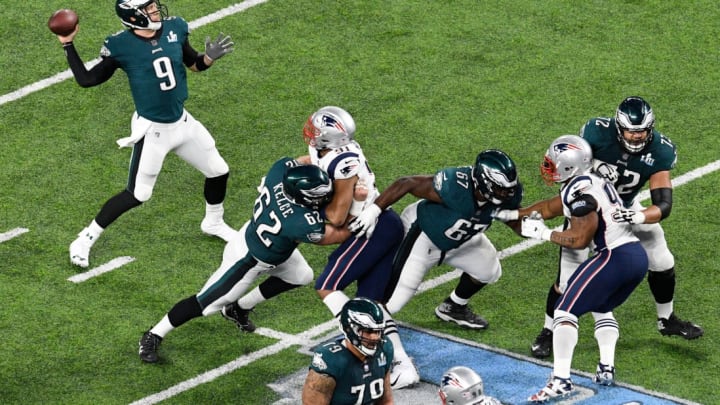The two-minute warning comes up at the end of each half in every NFL football game. Most fans take it for granted, but why does the NFL stop the clock with two minutes or so left in each half? Is it just so the NFL can sneak an extra commercial break into the action? Here's a quick story you can pass on to your relatives later today.
The custom of giving teams a two-minute warning dates all the way back to the NFL's first years. In those days, fans and coaches couldn't just take a look at the stadium clock to see how much time remained in the half. The official game clock resided in the pocket or on the wrist of one of the officials, and the stadium's clock was just a rough estimate of how much time remained in the game. Thus, the NFL instituted a two-minute warning where the referee would stop the clock and let both teams know exactly how much time remained in the game.
Obviously, that sort of "warning" is no longer necessary.
Starting in the 1960s the NFL made the stadium's clock the official game clock, which is why you occasionally see officials stop play to request time be put back on the clock. The league didn't want to do away with the two-minute warning, though, which had become an important strategic part of the game, helped build excitement during game-closing drives, and offered broadcasters an opportunity to sell an extra set of commercials. As a result, the two-minute warning stuck around, which is why we still have to wait a few extra minutes to see the climaxes of games.
Other leagues either disregard the two-minute warning or have their own twists on it. There's no clock-stopping two-minute warning in NCAA football, but the rules require the referee to give both coaches and each team's captains a verbal warning when there are two minutes left in the game. Thanks to their short fields and frenetic pacing, arena football leagues only use a one-minute warning, and the Canadian Football League opts to use a three-minute warning instead of its shorter American cousin.
